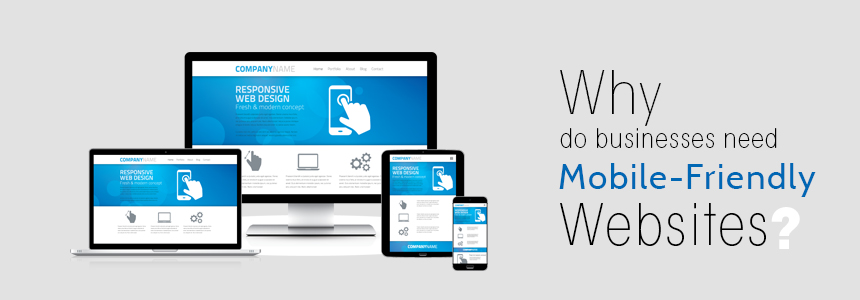Why do businesses need mobile-friendly websites?
In a marketplace driven by innovative technology and mobile devices, customers have no patience for websites that deliver below-par user experience on a mobile phone. Mobile-optimized websites, in particular those with a responsive design, are more likely to convert traffic into customers by delivering a sophisticated browsing and purchasing experience. Thus, having a mobile-friendly website is becoming imperative for businesses which seek to remain relevant to the changing customer needs and expectations.
Here’re some key reasons why businesses need mobile-optimized websites to remain competitive in today’s marketplace.
- Improve traffic on your website. Websites offering a seamless browsing experience, including intuitive navigation, easy-to-read font size, quick-to-load web pages etc, are a big hit with customers. They look forward to liking and sharing their favorite web pages and displayed products across social media. Employing a responsive or mobile-friendly website with resizable visual or textual elements ensures a hiccup-free user experience across different platforms. If your website link is forwarded to a potential customer and does not open on their mobile phone, you have lost a valuable lead!
- Enhance your Google ranking. Google—the most widely used search engine—has clearly indicated its intention to use mobile-friendliness as a ranking signal, pulling up websites that provide a better user experience on mobile in the search engine ranking. It can seriously impact your click through rate (CTR) too, over a period of time. In a mobile device search results, mobile-optimized sites are displayed on top of the others—all else being equal. Google’s mobile-friendly algorithm is applied page-by-page and not to the entire site. Businesses can start by optimizing their home page and other frequently used web pages and gradually overhaul the complete site.
- Deliver a strong and consistent brand impression. Having a secure, credible, user-friendly website goes a long way in creating and maintaining your brand equity. But, if that website is not optimized for mobile devices, it fails to deliver a consistent browsing experience across different platforms and devices—wasting your flawless branding strategy. Having mobile-optimized links and clickables, visual design, and purchase process can deliver gold in terms of brand reputation and credibility.
- Increase your ROI. More than 50% of traffic for Google and Amazon comes from mobile phones. Not having a mobile-friendly website when most of your target customers are searching for services and products on their mobiles can lead to lost revenue, benefitting your competitors. In addition, many phone plan providers are offering their subscribers a subscription-linked payment plan—offering a secure card-free method of online spending, set to a limit defined in their plan. Websites that are not mobile-friendly will lose out on this innovation.
A mobile-optimized website—optimized for mobiles according to best practices—can deliver better results in terms of search engine ranking and optimization, click through rate, lead generation, and ROI. Businesses, which have been lagging behind in implementing a mobile strategy for their business website, need to make it a priority right away.
